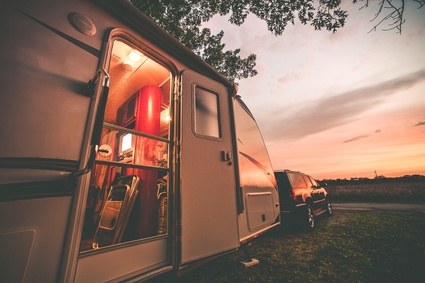
5 Critical Areas to Inspect Before Buying a Salvage RV
Salvage recreational vehicles can be a cost-effective alternative to new RVs, but careful inspection is crucial before purchase. Here are the five critical areas to examine when buying a salvage RV:

White motorhome parked outdoors
Tires Check for small cracks between treads, even if they appear superficial. Cracked or worn tires need replacement to prevent breakdowns and accidents. Factor replacement costs into your budget if necessary.
Rodent Damage RVs stored for long periods are susceptible to rodent infestations. Inspect seat cushions and storage spaces for droppings, which pose health risks and can damage interiors and electrical systems.
Appliances Test all appliances, including:
- Refrigerator
- Water heater
- Oven
- Power outlets
- Other essential systems
Malfunctioning appliances are expensive to replace, so include repair costs in your budget calculations.
Floor Examine the plywood flooring using a screwdriver to check for decay. Many RV floors use particle board, which deteriorates with moisture exposure. Signs of concern include:
- Flexing floors
- Mushy spots
- Soft areas when pressed
Water Damage Water damage indicators include:
- Musty odors
- Damp surfaces
- Water stains on wood
- Damage around air conditioners and skylights
- Soft spots when pressing on walls
Address any water damage immediately to prevent extensive structural issues.
These inspections help ensure you make an informed purchase decision and understand potential repair costs before finalizing the deal. Always thoroughly examine any salvage RV, regardless of its apparent condition or price point.
Related Articles

Comprehensive Guide to Salvage Car Auction Laws and Regulations

